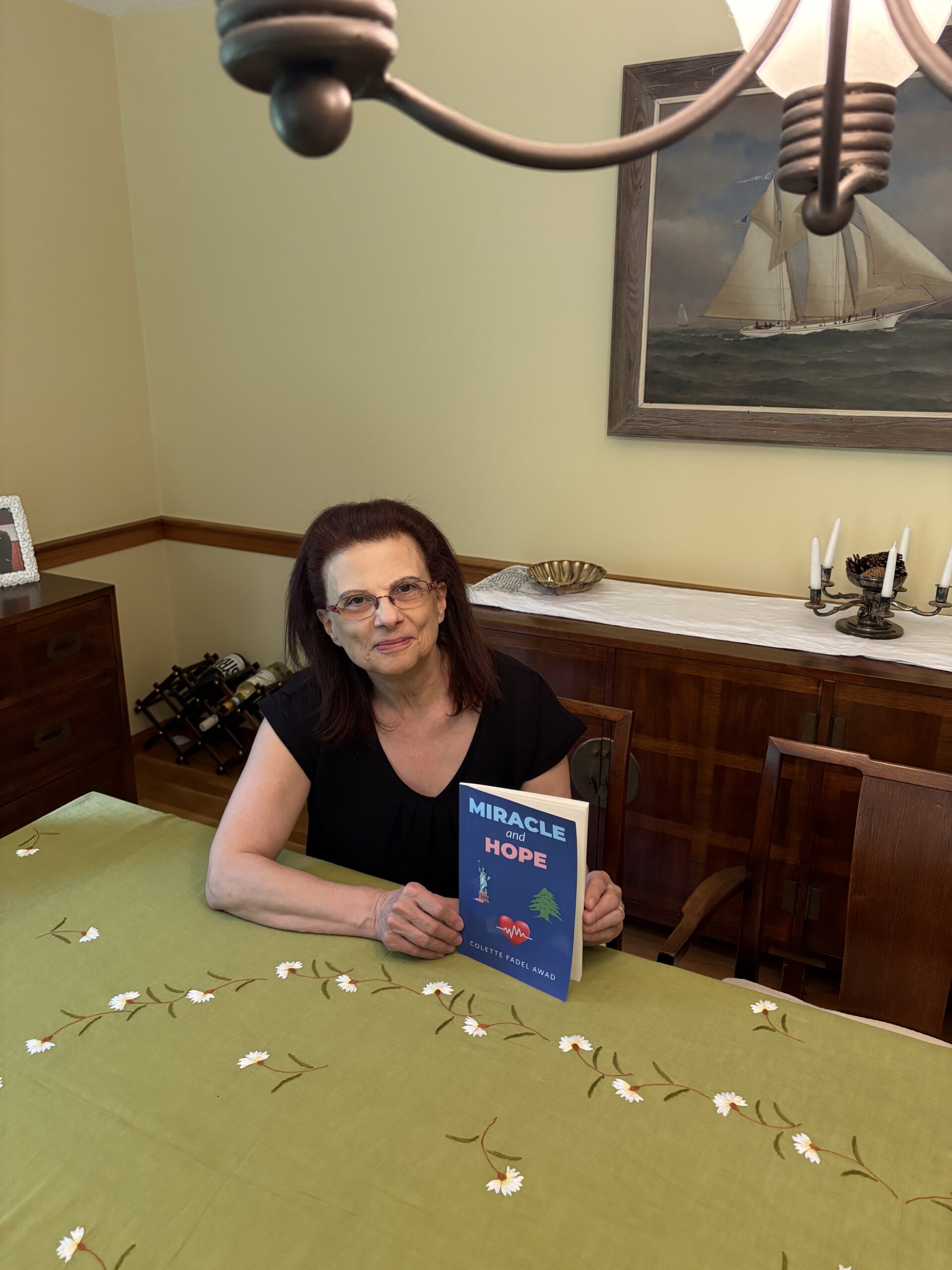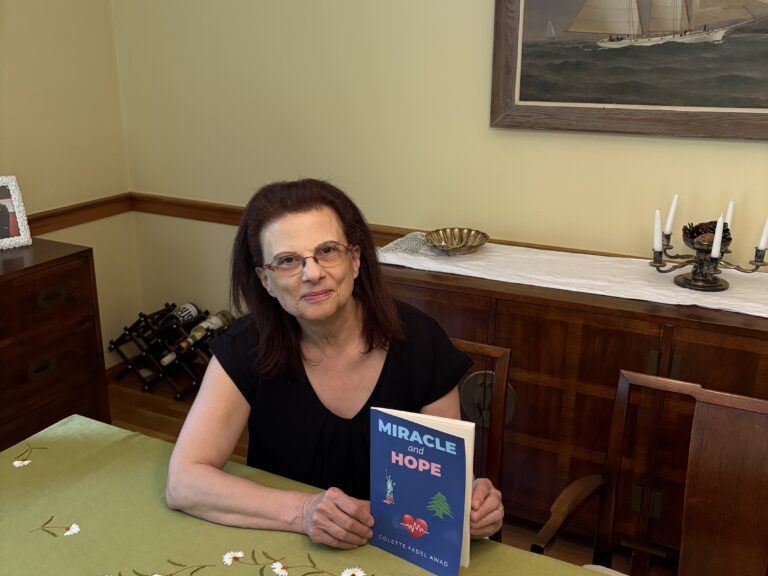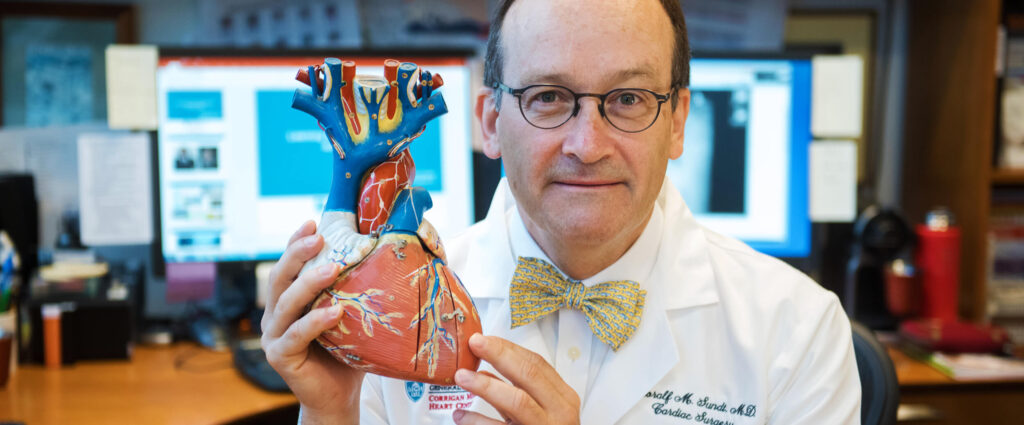In 2007, Colette Awad got a call that no parent wants to receive: Her son had collapsed from a sudden cardiac arrest, and an ambulance was rushing him to the hospital. Thanks to the quick thinking of a Massachusetts General Hospital resident working that night, and an innovative protocol they employed to preserve the oxygen in his body, Colette’s son pulled through. Since then, she has written a book, Miracle and Hope, to help others find comfort in her story — and to raise funds for Mass General’s heart and vascular program.
“As a mother, you want to protect your children. We’re originally from Lebanon. During the civil war, there were explosions everywhere. I didn’t want my son to grow up in an environment where he’s dodging bombs and living the risk of dying every day. So, we left in 1985 when he was 18 months old.
Years later, when my son was 23 years old, with no history of heart issues, he went into cardiac arrest.
He came home one night after going out to dinner with friends, and he just collapsed. His girlfriend called 911, and the ambulance took him to Cambridge Hospital, near where they were living. There was a cardiac fellow from Mass General working there that night; when he and the team at Cambridge Hospital figured out what was happening, he recommended transferring my son to Mass General. The cardiology team had a protocol there that could save his life and minimize consequences of hypoxia — where the body’s organs and tissues don’t get enough oxygen.
His doctors at Mass General sedated him and put him into a hypothermic state, using a suit that pumped cold water to bring his body temperature down. They wanted to lower the rate of metabolism so his brain could get whatever oxygen was in his body. We didn’t know what the outcome would be. For a couple of days, it was a wait and see game.
“My son’s life was saved at Mass General, and we’ve been giving to the hospital ever since. I want to help any way I can.”
We were so distraught, praying the whole time. The doctors and nurses were so efficient and compassionate with him, and with us. The attending physician, along with the cardiology residents and fellows, explained exactly what was going on and that they would figure out the best treatment for him. We were kept abreast of everything. One of the intensive care unit nurses even helped us get cots so we could sleep in the waiting room. Everyone came to us with so much compassion, giving us hope about the outcomes and working to make us feel better.
According to the American Red Cross, when patients suffer cardiac arrest outside of the hospital, only about 10% survive. But the Mass General fellow who was able to shed some light on what we could do played a big role in my son’s survival. Everything was done so methodically and well. My son was in the hospital for 10 days, and, while he suffered some hypoxia, he ultimately was able to go home. Since they couldn’t find a root cause for the cardiac arrest, they put in an implantable cardioverter-defibrillator, which is a small battery-powered device in his chest that detects and stops irregular heartbeats. And he’s been fine since, with regular check-ups and monitoring at Mass General over the course of 17 years.
There are others who go through what we went through, and I wanted them to find hope in our story. So, I wrote Miracle and Hope to document the emotional roller coaster. I wanted to draw attention to cardiac arrest in young people. With my son’s cardiac arrest, he endured a lot, physically and emotionally. It can happen for no reason — are we prepared for that?
I’m hoping proceeds from the book will help fund research and patient care at Mass General Brigham’s Heart and Vascular Institute, to help people who have gone through a cardiac event like his. I also hope that the book creates awareness about the importance of having automated external defibrillators readily available. I know people die from cardiac events in public places all the time, and these devices save lives. They can take you from total hopelessness to giving you hope and helping win the day.
My son’s life was saved at Mass General, and we’ve been giving to the hospital ever since. I want to help any way I can.”
To learn more about how to support heart and vascular programs, please contact us.
To purchase Colette’s book, click here, or visit the Mass General gift shop on the hospital’s main campus.





